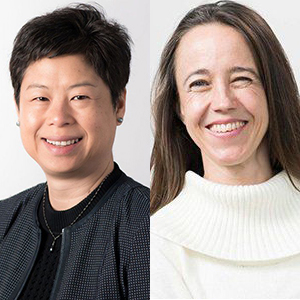The University of California, Berkeley and the University of California, San Francisco have announced a joint program in computational precision health with the goal of improving the quality and equity of health care.
The program will advance a new field at the intersection of medicine, statistics, and computation and enable new and more personalized techniques for the prevention, diagnosis, treatment, and management of disease. To that end, a $50 million gift from an anonymous donor will fund the hiring of four faculty members over the next year and initiate development of a PhD degree program that will be jointly conferred by UC Berkeley and UCSF, which have committed to securing an additional $100 million from philanthropy, federal grants, and industry partnerships.
Through the joint program, researchers will collaboratively develop methods for data-driven clinical care, early detection, intervention, and prognosis, as well as targeted treatments that are more effective and have fewer side effects. The program also will train the next generation of researchers to design, build, and test innovations such as machine learning, digital health, and clinical decision support systems in real-world clinical and public health settings. In addition, the program will work to ensure equity, fairness, accountability, and transparency across all of its educational and research activities.
“The current evidence-based approach in medicine has led to health interventions and treatments that work — on average — for selected and often non-representative patients,” said Ida Sim, a professor of medicine at UCSF, who will serve as co-director or the program with Maya Petersen, associate professor of biostatistics and epidemiology at Berkeley. “Many patients and patient populations face risks to their health from the use of data that are incomplete, data systems and infrastructure that are not well connected, and inherent bias in how data are collected and analyzed.”
“Through this program, we aim to create a pipeline of diverse leaders committed to this goal, including those communities most impacted by existing health inequities,” said Peterson. “Embedded in all core courses in our curriculum will be a focus on diversity, equity, and inclusion — asking who are solutions built for and who are solutions built by — human-centered design, and the consideration of the ethical implications and societal impacts of this work.”
(Photo credit: University of California, Berkeley and University of California, San Francisco)
Copyright for syndicated content belongs to the linked Source link










